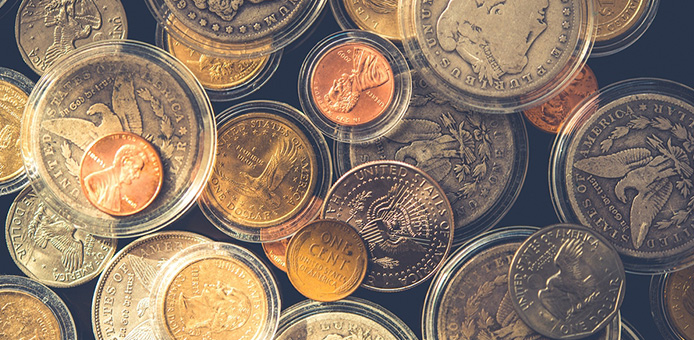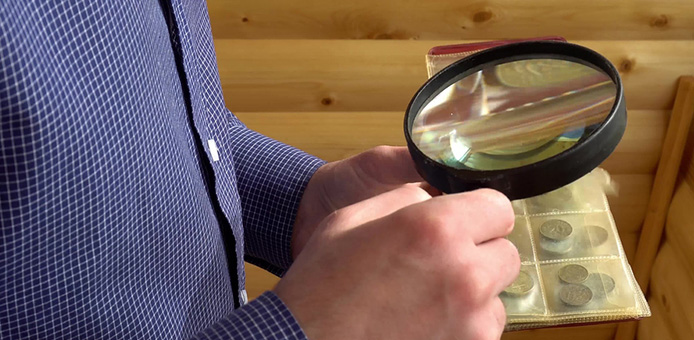
Coin collecting is a practice as old as money, and has been referred to as “the hobby of kings.” 1 Have you had a coin collection for decades, or did you just inherit one from a relative? Do the coins look tarnished and dirty? Before you start scrubbing, you might want to consult a coin expert because the coins could have numismatic value that cleaning will ruin.
Numismatic Definition
Merriam Webster defines numismatics as “the study or collection of coins, tokens, and paper money.” 2 Numismatic coins are collectors’ items, and typically command a higher value than the face value of the coins. The value of numismatic coins is determined by four key factors:
- Condition
- Grade
- Scarcity
- Demand
When a coin is exceptional in regard to one or more of these factors, it can prove quite valuable on the numismatic market. For example, a rare 1880 Coiled Hair Stella sold for an astounding $2,574,000 at auction in 2013.
Grading is one of the biggest factors in determining the value of a numismatic coin. There are two grading services that handle the majority of grading in the United States, Professional Coin Grading Services (PCGS) and the Numismatic Guaranty Corporation(NGC). These companies use a 70-point coin grading scale originally developed by Dr. William Sheldon in 1949, which ranks coins from Poor or P-1 all the way up to Mint State Basal or MS-70.
Reasons Not to Clean Old Coins

In general, numismatists will tell you that cleaning coins is a bad idea. They will even go so far as to tell you not to handle them except by holding them along their edges, and even then, with extreme care. In fact, with the highest grade coins, the experts recommended that you wear lint-free cotton gloves to handle them. 3 There are a few problems with cleaning old coins:
- Metal cleaners or coin cleaning solutions advertised on televisions damage coins. These solutions use acids or abrasives to clean the metal and this will seriously reduce the value of the coin. They can remove some of the original finish or tone and even cause scratching, so they are viewed as a major negative in the world of numismatics.
- Polishing or rubbing coins can cause unnatural shine or other damage, also reducing the value of your coins.
- Cleaning is a factor in coins not qualifying for grading. In this video by PCGS Director of Education Mike Sherman, he discusses how cleaning is one of the factors that often prevents a coin from qualifying for grading.
Given these risks, you should absolutely not clean old coins. If they are old, have “toning” (numismatic term for tarnish), or look like they need a clean, they could be valuable and cleaning will destroy a substantial part of that value.
Determining Your Old Coins’ Worth
Determining old coin value is a science, and must be done by professional coin advisors. The older, rarer, and more valuable the coin is, the more expertise is required to handle it properly and to discern its value.
If you think that you have an old coin worth more than its face value, or if you have any collection at all, consult the professionals at Scottsdale Bullion & Coin. Their coin experts have over 100 years of collective experience in the precious metals industry and will provide you with friendly, knowledgeable advice on the value of your old coins and options for selling or diversifying your investment portfolio with them.
👉 Related Read: How to Sell a Coin Collection: 4 Expert Tips

